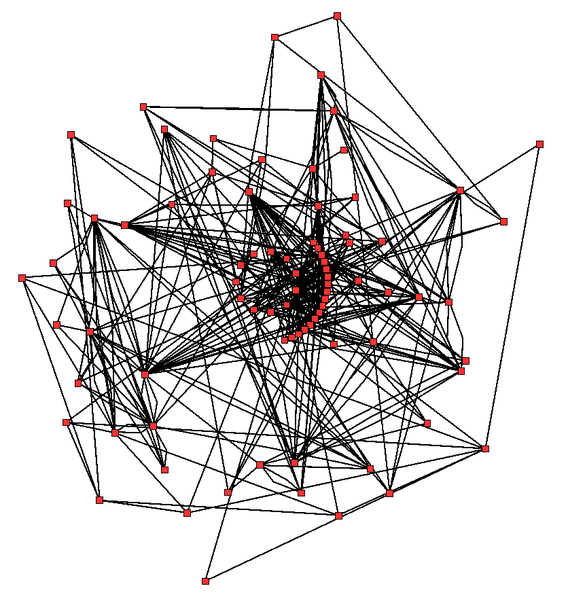Summary
How do we form opinions? In economics and sociology, the opinions held by individuals are often modeled as numerical values; people arrive at a shared opinion by repeatedly averaging their opinion with the opinions of neighbors in a social network. But in real life, consensus is rarely reached. Motivated by this observation, we study a related model in which individuals’ intrinsic beliefs counterbalance the averaging process and yield a diversity of opinions.
By interpreting the repeated averaging as best-response dynamics in an underlying game with natural payoffs, and the limit of the process as an equilibrium, we are able to study the cost of disagreement in these models relative to a social optimum. We provide a tight bound on the cost at equilibrium relative to the optimum; our analysis draws a connection between these agreement models and extremal problems that lead to generalized eigenvalues. We also consider a natural network design problem in this setting: which links can we add to the underlying network to reduce the cost of disagreement at equilibrium?
Papers
@article{2015-geb,
author = {Bindel, David and Kleinberg, Jon and Oren, Sigal},
title = {How Bad is Forming Your Own Opinion?},
journal = {Games and Economic Behavior},
volume = {92},
number = {C},
year = {2015},
pages = {248--265},
doi = {10.1016/j.geb.2014.06.004},
arxiv = {1203.2973}
}
Abstract:
The question of how people form their opinion has fascinated economists and sociologists for long time. In many of the models, a group of people in a social network, each holding a numerical opinion, arrive at a shared opinion through repeated averaging with their neighbors in the network. Motivated by the observation that in reality consensus is rarely reached, we study a related sociological model in which individuals’ intrinsic beliefs counterbalance the averaging process and yield a diversity of opinions.
We interpret the repeated averaging process as best-response dynamics in an underlying game with natural payoffs and its limit as an equilibrium. This allows us to study the cost of disagreement by comparing between the cost at equilibrium and the social optimum. We also consider a natural network design problem in this setting: which links can we add to the underlying network to reduce the cost at equilibrium?
@inproceedings{2011-focs,
author = {Bindel, David and Oren, Sigal and Kleinberg, Jon},
title = {How Bad is Forming Your Own Opinion?},
booktitle = {Proceedings of the 52nd IEEE Symposium on
Foundations of Computer Science (FOCS)},
month = oct,
year = {2011},
doi = {10.1109/FOCS.2011.43},
arxiv = {1203.2973}
}
Abstract:
A long-standing line of work in economic theory has studied models by which a group of people in a social network, each holding a numerical opinion, can arrive at a shared opinion through repeated averaging with their neighbors in the network. Motivated by the observation that consensus is rarely reached in real opinion dynamics, we study a related sociological model in which individuals’ intrinsic beliefs counterbalance the averaging process and yield a diversity of opinions. By interpreting the repeated averaging as best-response dynamics in an underlying game with natural payoffs, and the limit of the process as an equilibrium, we are able to study the cost of disagreement in these models relative to a social optimum. We provide a tight bound on the cost at equilibrium relative to the optimum, our analysis draws a connection between these agreement models and extremal problems for generalized eigenvalues. We also consider a natural network design problem in this setting, where adding links to the underlying network can reduce the cost of disagreement at equilibrium.
Talks
From Networks to Numerical Linear Algebra
NYCAM
opinions
•
meeting external organizer
